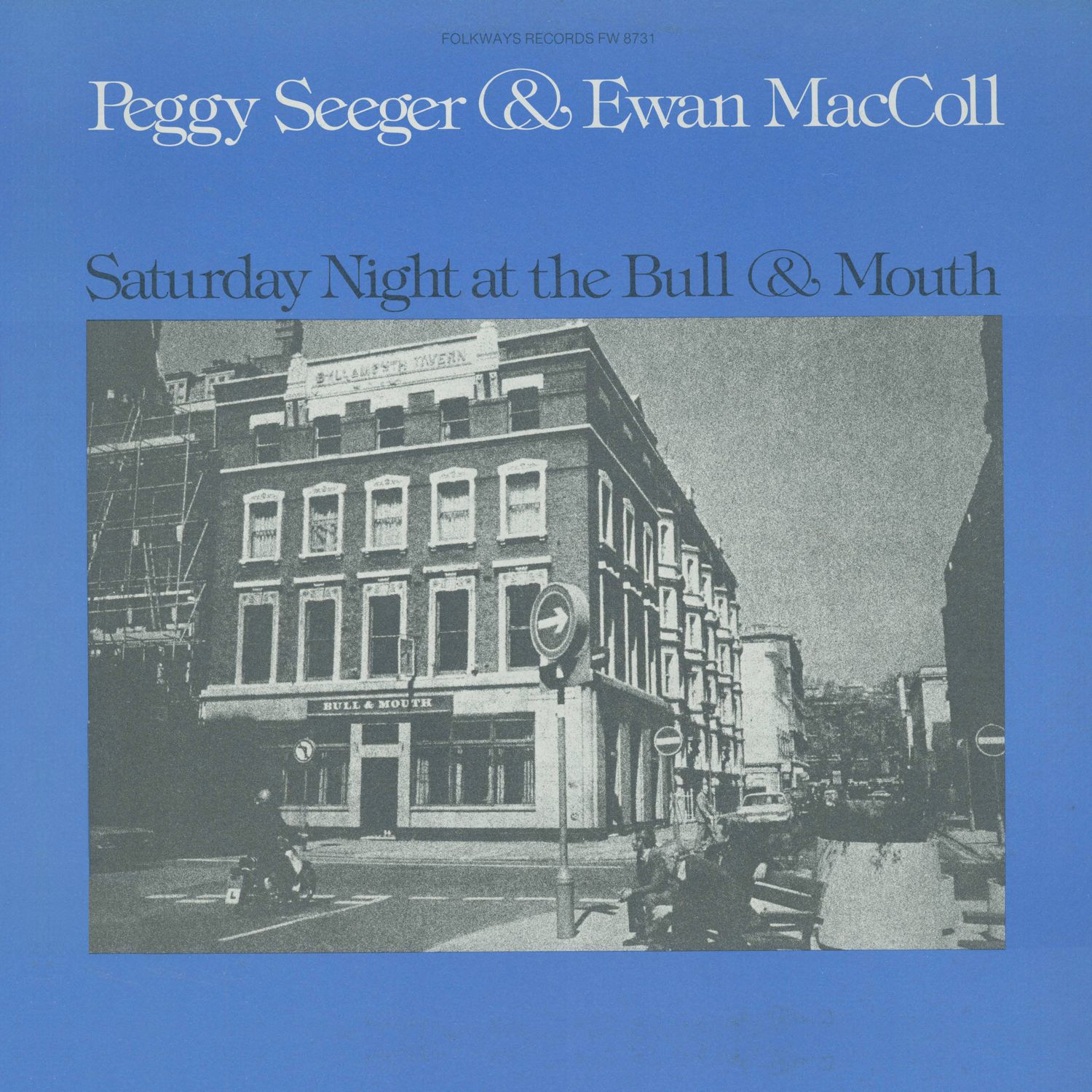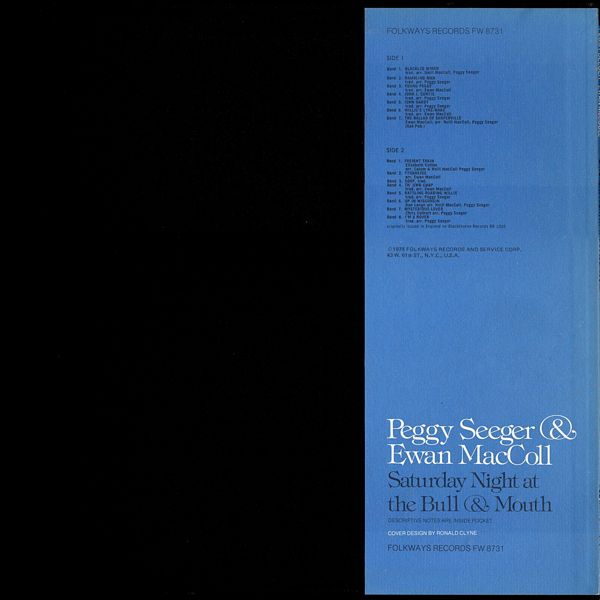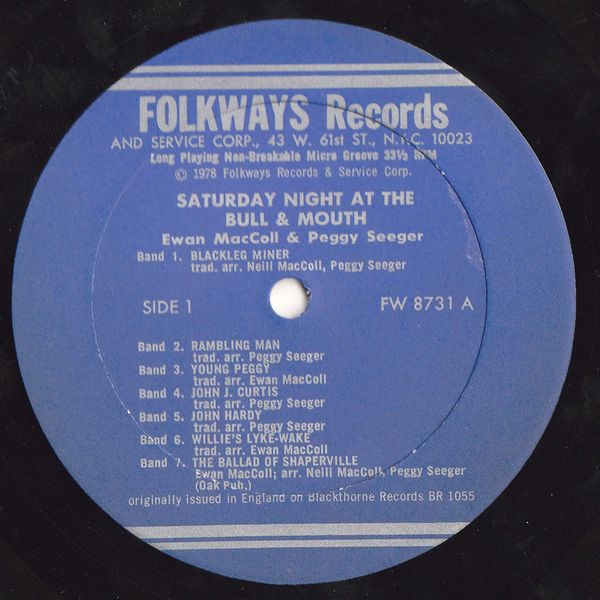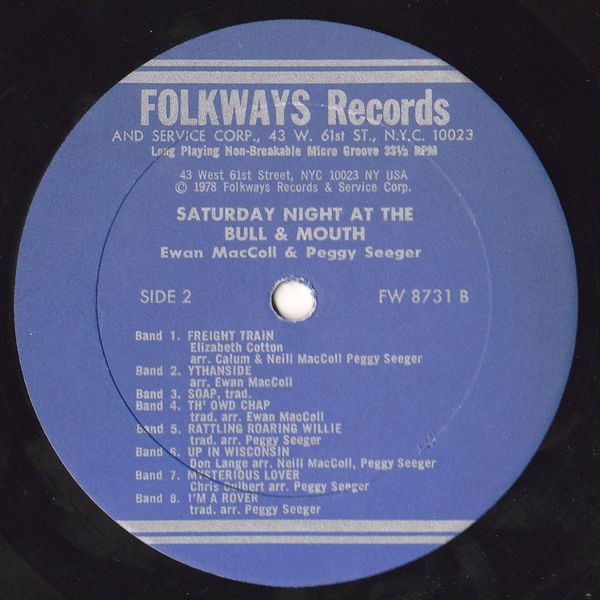

 |



|
Song Notes
Blackleg Miner — The term blackleg was originally used to describe racehorse swindlers and gamblers who betted without intending to pay their losses, and is thought to allude to the legs of a rook, another name for a swindler. Since 1865, it has become the generally accepted term for a scab or strikebreaker. The hatred and contempt of organised workers for those who desert to the enemy is perfectly expressed in this hard-hitting song from County Durham.
The Rambling Man — This American version of "The Gaberlunyie-Man" (No. 279, Appendix, in the Child collection of ballads) has turned the Scots beggar man into a new world nomad. The ballad has rarely been collected at all in the United States, but to this day it is a favourite amongst traditional and revival singers in Scotland, where it lives a vigorous and varied life.
Young Peggy — It isn't often that one finds a traditional ballad as lyrical and tender in feeling as this one. Here there is no blood, no cruelty, just two people in love and determined to consummate their love as quickly as possible.
John J. Curtis — This song was taken from the singing of Andrew Rada, Shenandoah. Pennsylvania in 1946. John J. Curtis was a shotfirer in the Morea Colliery and he lost his light in 1888. Thereafter, led by a boy, he roamed the anthracite region singing this ballad and selling broadsheets on which IT was printed. The text was made for him by the Lansford bard. Joseph Gallagher.
John Hardy — The "hero" of this song died on the gallows on January 10, 1894, in McDowell County, West Virginia. He worked for the Shawnee Coal Company and was said to be "black as a crow, over six feet tall, weighed about 200 pounds, was raw-boned and had unusually long arms." One pay-day night, he killed a man in a crap game over a dispute of twenty-five cents In the traditional song repertory, the gambler, drunkard and murderer John Hardy is occasionally confused with the epic black railroader. John Henry
Willie's Lyke-Wake — Feigning death in order to entice a shy young woman into one's bed might, in these times, be regarded as an unnecessarily devious stratagem. But for Willie it works. According to Professor Child the theme "enjoys considerable popularity in European ballads" The song is a great favourite with Singers' Club audiences.
The Ballad Of Sharpville — In 1960, in the township of Sharpeville, South Africa, blacks taking part in a peaceful demonstration against the iniquitous pass-law were mowed down by the police. Sixty-seven blacks were killed in the space of seven minutes. This song was written a few days after the event. The mounting struggle of the people of Southern Africa and, in particular, the recent events in Soweto, have had the effect of maintaining the song's topicality.
Freight Train — I first heard this song from Elizabeth Cotten, a black woman from North Carolina who had come up to Washington D.C. It has changed since then — Libba used to play with a two-fingered left handed style, gently and with a kind of almost tender urgency. The song has now become an old favourite and has passed through the often careless hands of the revival and become many things to many people. To me. it is still Libba's song, and I have inserted another of her pieces, "The Wilson Rag" into the break in the middle.
Ythanside — The river Ythan rises at the Wells of Ythan in Aberdeenshire and empties into the North Sea near Newburgh, a mere 35 miles away. Not much of a competitor in the big river stakes! Nevertheless, the Ythan has inspired this almost perfect portrayal of rural courtship proving, once again, that small can be beautiful.
Three Soap — This story is told in North Carolina, but its theme is a common one in European folktales. Usually the central figure is a simpleton who repeats his instructions over and over, forgetting them when he stumbles.
Th' Owd Chap — In this Lancashire version of "Our Gudeman" (Child 274), our unfortunate hero is neither drunk nor particularly scandalised by the evidence of his wife's infidelity. One feels that he has become accustomed to the weight of his horns and all that matters to him now is having the last querulous work in the verbal battle with his contemptuous spouse.
Rattling Roaring Willie — The hero of this short piece is a fiddle player. Robert Burns added the third stanza as a compliment to his friend William Dunbar, a member of the Edinburgh club. The Crochallan Fencibles. And "one of the worthiest fellows in the world".
Up In Wisconsin
The writer of this song. Don Lange, lives in Iowa, where he drives trucks for a living. The last verse was written by Peggy.
Mysterious Lover — Christine Culbert is a London teacher who hails from Yorkshire. She wrote this song as part of a song writing seminar, which took place in London in 1968.
I'm A Rover — This handsome night visit song has become one of the great dub choruses throughout Britain. It is generally used to wind up a Saturday night at the Singers' Club.